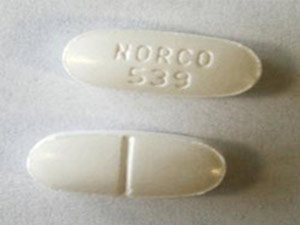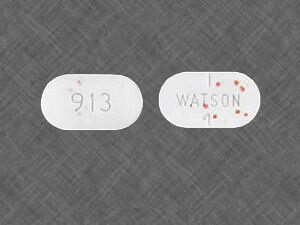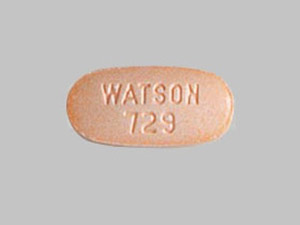Buy Norco Online
Showing all 3 results
Introduction to Norco pills for pain management
Overview of Norco medication
Norco is a prescription medication that combines hydrocodone, an opioid pain reliever, and acetaminophen (commonly known as Tylenol), a non-opioid pain reliever. It is primarily used to manage moderate to severe pain.
Key Components:
- Hydrocodone: A narcotic analgesic that works by changing how your brain and nervous system respond to pain.
- Acetaminophen: Enhances the effects of hydrocodone and helps reduce fever.
Uses of Norco pills:
- Relieves moderate to severe pain, such as post-surgical pain or chronic pain not well-managed by other medications.
Dosages for pain management:
- Typically taken orally, every 4–6 hours as needed for pain.
- The dosage depends on the specific formulation and the patient’s medical condition, pain severity, and response to treatment.
Risks and considerations when using Norco for severe pain
Side Effects:
Common side effects may include:
- Drowsiness
- Dizziness
- Nausea
- Vomiting
- Constipation
- Lightheadedness
Severe side effects:
- Respiratory depression (slowed breathing)
- Severe drowsiness or confusion
- Liver damage (with excessive acetaminophen intake)
- Addiction or dependence (if misused)
Understanding severe pain and when to consider Norco
Defining severe pain and its impact on daily life
Severe pain refers to intense, persistent discomfort that significantly affects a person’s physical, emotional, and psychological well-being. Unlike mild or moderate pain, severe pain can be debilitating, often interfering with a person’s ability to perform daily activities, maintain relationships, and sustain their livelihood.
Key Characteristics of Severe Pain:
- Intensity: Often rated high on pain scales (7-10 out of 10).
- Duration: It may be acute (short-term but intense) or chronic (lasting weeks, months, or even years).
- Resistance to Treatment: Severe pain may not respond well to standard pain relief methods, requiring more complex management strategies.
- Physical Symptoms: Includes limited mobility, fatigue, and disrupted sleep patterns.
Impact on Daily Life:
- Physical Functioning: Severe pain can restrict basic activities like walking, climbing stairs, or lifting objects.
- Mental Health: Prolonged pain is often linked to anxiety, depression, or feelings of helplessness.
- Work and Productivity: Many individuals are unable to maintain regular work schedules, leading to financial and career challenges.
- Social Relationships: Pain can strain personal relationships, as individuals may withdraw from social activities due to discomfort or irritability.
- Quality of Life: The constant presence of pain diminishes enjoyment of life and creates a pervasive sense of struggle.
Alternatives to Norco for managing severe pain
Non-pharmacological alternatives for pain management
Non-pharmacological alternatives for pain management can be effective for addressing both acute and chronic pain. These methods are often used in conjunction with medical treatments or as stand-alone interventions, depending on the condition. Here are some widely recognized approaches:
1. Physical Therapy and Exercise
- Physical Therapy: Tailored exercises to improve mobility, strength, and reduce pain.
- Aquatic Therapy: Gentle, low-impact exercise in water to ease joint pain.
2. Psychological Approaches
- Cognitive Behavioral Therapy (CBT): Helps reframe thoughts and behaviors related to pain.
- Mindfulness and Meditation: Reduce pain perception and stress through focused relaxation.
- Biofeedback: Uses technology to teach control over physiological functions like muscle tension and heart rate.
3. Heat and Cold Therapy
- Heat Therapy: Useful for muscle stiffness and chronic pain.
- Cold Therapy: Reduces inflammation and numbs acute pain.
4. Electrical Stimulation
- TENS (Transcutaneous Electrical Nerve Stimulation): Sends low-voltage electrical impulses to reduce pain perception.
5. Lifestyle Changes
- Nutrition: Anti-inflammatory diets can reduce pain associated with arthritis or autoimmune conditions.
- Sleep Optimization: Adequate sleep supports overall pain management.
6. Occupational Therapy
- Teaches techniques to manage daily activities in a way that minimizes pain.
7. Herbal and Natural Remedies
- Examples include turmeric, ginger, and capsicum-based creams for topical pain relief. These should be used under guidance to ensure safety.
8. Supportive Devices
- Braces, Splints, and Orthotics: Provide support and alleviate strain on affected areas.
- Ergonomic Adjustments: Modifying workspaces to reduce strain and discomfort.
9. Engaging in Hobbies
- Creative activities like painting, music, or gardening can serve as distraction techniques and reduce the emotional impact of chronic pain.
Conclusion:
Effective management of severe pain often requires a multidisciplinary approach, incorporating medical, psychological, and physical therapies. These approaches can often be personalized to fit the specific needs of individuals. Discussing them with healthcare providers ensures safe and effective integration into a pain management plan.



